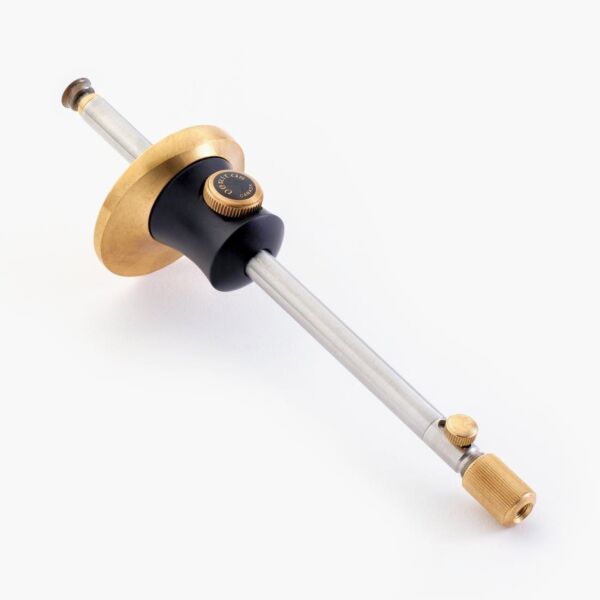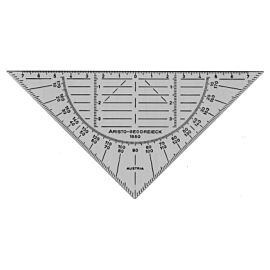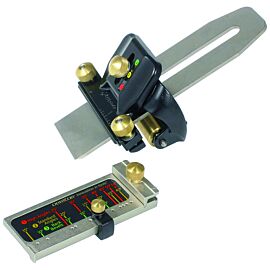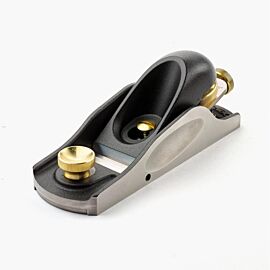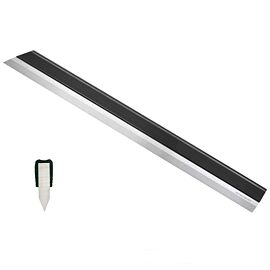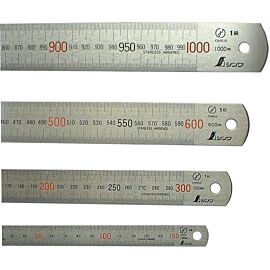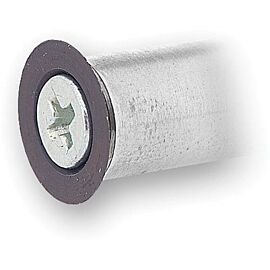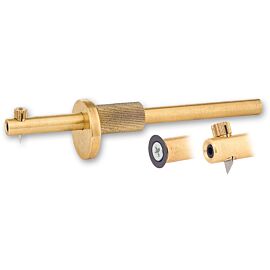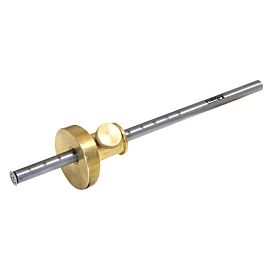€49.10
In stock
This micro-adjust wheel-marking gauge draws on two decades of manufacturing experience, with many refinements and subtle improvements over previous Veritas gauges.
Made in Canada.
Made in Canada.
Details
The adjustment mechanism built into the stainless-steel rod is intuitive to use. After setting the approximate projection, you can fine-tune the position of the cutter within a range of 1/4". A fine-pitch internal thread allows slow, careful adjustment, so setting the gauge precisely is a snap.
Locking knobs keep the setting from shifting in use. The eccentric placement of the rod through the brass face and aluminum body ensures a large reference surface for square registration on the stock and helps the gauge resist rolling on a bench top.
Of course, the core of the marking gauge is still the hardened steel wheel cutter, which solves the two main problems of a pin-based marking gauge – the need to tilt it just right to avoid chatter, and the tendency of the pin to follow the wood grain, throwing off your line. It scribes perfectly at any point of its circumference, cutting neat marks even on cross grain.
The wheel's single-sided bevel also pulls the gauge face against the stock, helping to maintain accuracy. Its cutting edge is at the extreme end of the rod, useful for transferring dimensions such as tenon shoulder and mortise depth, and retracts into a hollow in the gauge face for protection.
Locking knobs keep the setting from shifting in use. The eccentric placement of the rod through the brass face and aluminum body ensures a large reference surface for square registration on the stock and helps the gauge resist rolling on a bench top.
Of course, the core of the marking gauge is still the hardened steel wheel cutter, which solves the two main problems of a pin-based marking gauge – the need to tilt it just right to avoid chatter, and the tendency of the pin to follow the wood grain, throwing off your line. It scribes perfectly at any point of its circumference, cutting neat marks even on cross grain.
The wheel's single-sided bevel also pulls the gauge face against the stock, helping to maintain accuracy. Its cutting edge is at the extreme end of the rod, useful for transferring dimensions such as tenon shoulder and mortise depth, and retracts into a hollow in the gauge face for protection.


